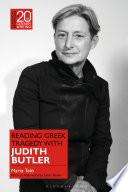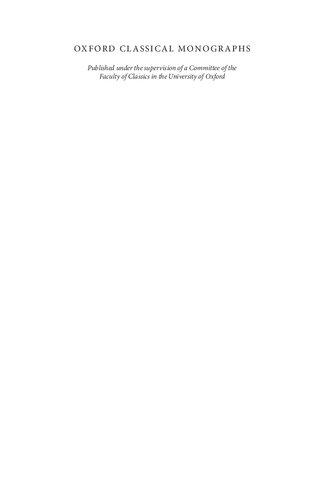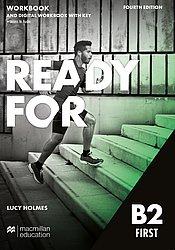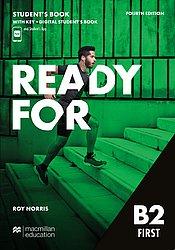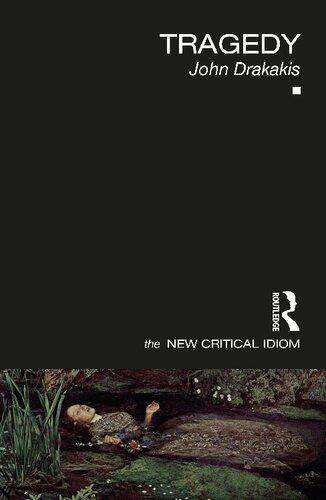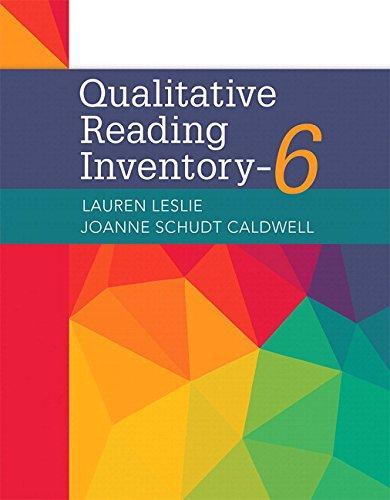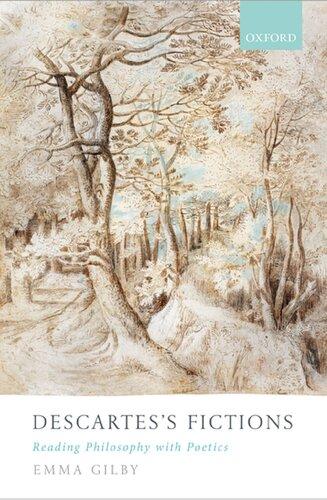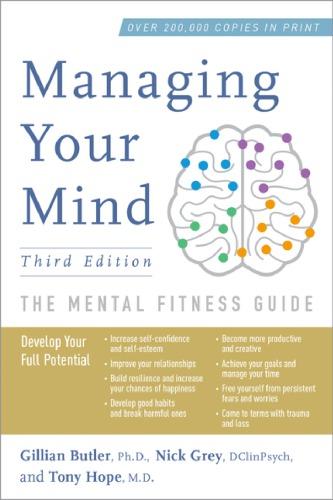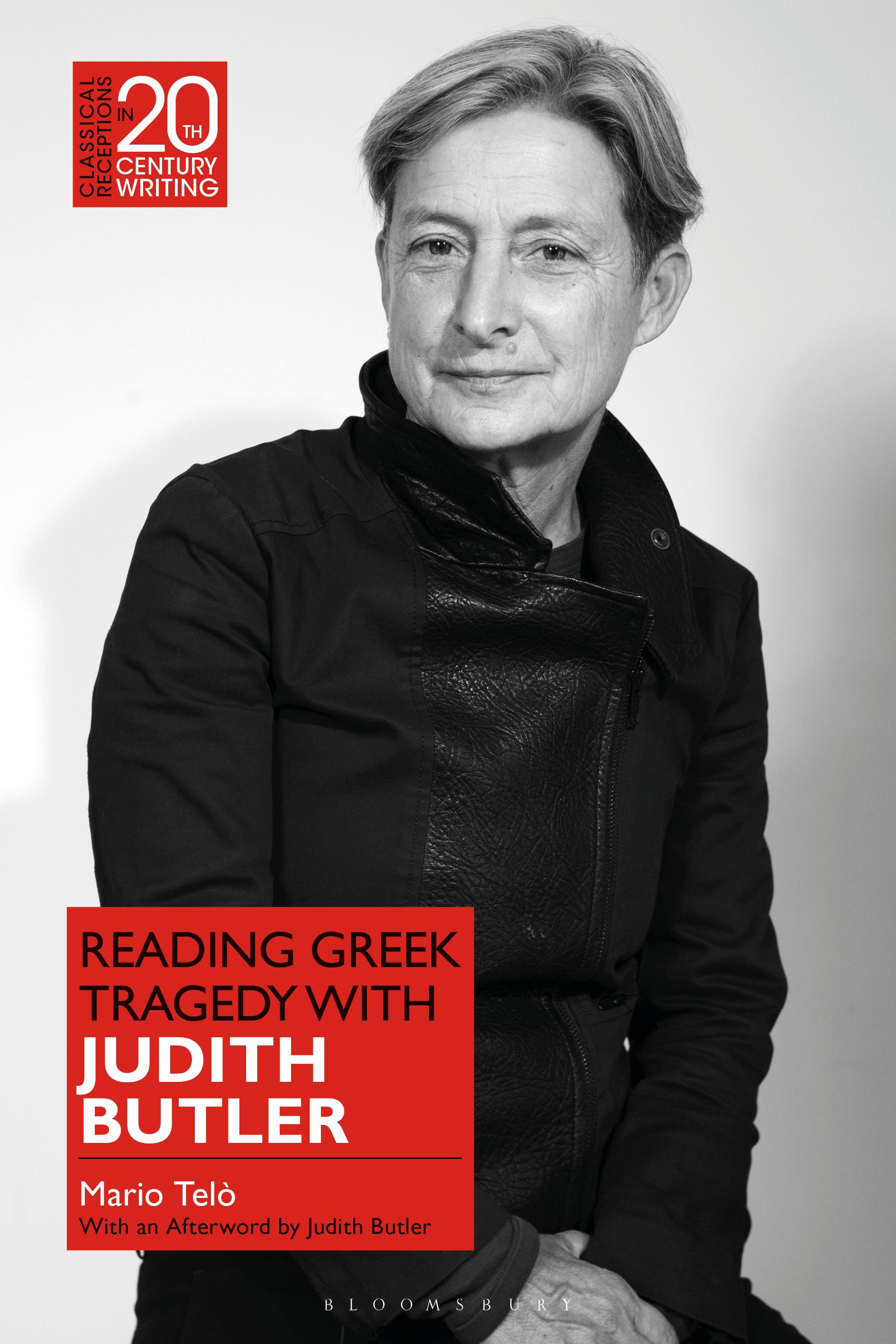Breaking Apart: Greek Tragedy, Judith Butler, and Critique
Consider . . . that laughing and crying both disrupt the very conditions of communication and open up modes of expression and intervention that go beyond the sphere of communication. One starts to speak but breaks out in laughter, at which point the laughter interrupts speech; one cannot finish the sentence. One can hardly catch one’s breath. Or one starts to tell a story, and one breaks out in tears and starts gasping for breath. Something somatic is happening that interrupts the course of speaking. The sounds of the body exceed that form of vocalization called speech. Something else is making itself known; the body erupts, the body interrupts its own speaking and announces itself as insistent, graphic, audible, and unavoidable. I do not know, but I don’t believe that people die from laughing or from crying, and yet, it is possible to say that both laughing and crying indicate a crisis for the human subject, one that is to some extent ordinary.1
In this extract from the lecture “Out of Breath: Laughing, Crying at the Body’s Limit,” delivered in Mexico City in 2019, Judith Butler poetically lingers on the relation between “break” and “breath,” on the sensory emergence of the body through its being torn apart in a moment of affective dissolution, its grasping for relief amid the eruption of its own undoing, a serendipitous selfinterruption. Crying and laughter do not pit tragedy and comedy against each other; coexisting and blurring in the aesthetic domains of both genres, they are disruptions that spread the social and political sense of drama (“doing, action”), a word in which the initial rhotic vibration (dr. . .) enables a vocalic opening (a. . .a) for action, acting, or—to take the Latinate etymological constellation in a different direction—agitation 2 They offer an opportunity to experience the
affective and cognitive perception that as a coming apart the brokenness or breakability of a notionally individual breath or body manifests a projection toward, or an implication with, an other-than-oneself-ness.3 The exceeding of boundedness is what makes the subject’s life possible, producing a self-loss, a de-subjectification, that is unavoidable but can be embraced (rather than disavowed) in the being with that being always entails.4
Breakability is central to the aesthetics of Greek tragedy and to an array of distinctive, influential, and deeply tragic critical-theoretical Butlerian ideas: gender and kinship trouble, precarity, interdependence, grievability, and vulnerability in resistance, among others. The goal of this book is to illuminate these affinities through an analysis of what I call Butler’s tragic trilogy—a phrase I use to group together a book and two essays devoted to three classics of Greek tragedy, one for each major tragedian: Sophocles’ Antigone, at the center of Antigone’s Claim: Kinship between Life and Death (2000); Euripides’ Bacchae, in “Breaks in the Bond: Reflections on Kinship Trouble” (2017); and Aeschylus’s Eumenides, in “Fury and Justice in the Humanities” (2023). Butler’s trilogy does not trace a developmental narrative, nor does it outline a dramaturgical enactment of the Hegelian dialectic’s tripartite movement, as the Oresteia has been read to do.5 It is both like Sophoclean and Euripidean trilogy—which, as far as we know, offered no narrative through lines—and the Oresteia itself, in which diachrony, teleology, and resolution after tension are replaced or un-dialectically problematized by unexpected thematic intertwinements and disruptive synchronies.6 In Butler’s trilogy, as we will see, “improvisational solidarit[ies]” and “sliding identifications”7—to use their phrases—are formed between Antigone, the Maenads, Agave, the Erinyes, and also Niobe and Iphigenia. The anti-narrative triangularity of the Butlerian trilogy—unplanned, “improvisational”—goes along with the Oresteia’s thickly imagistic, intricately intratextual plot or anti-plot, an alternative mode of connectivity that, like laughing or crying, “interrupts speech,” breaking the imperative to “tell a story.”8 Exceeding narrative’s “own speaking,” the drive to move on, anti-narrative connectivity bids us to linger; it makes room for critique, alternative “modes of expression and intervention” that turn affect’s and form’s power of undoing into a theory and praxis of politics.
Modern and contemporary thought is bound up with Greek tragedy—a major point of reference and an inexhaustible archive of dialogue for the likes
of Hegel, Kierkegaard, Nietzsche, Marx, Freud, Benjamin, Heidegger, Lacan, Arendt, Sartre, Derrida, Foucault, Irigaray, Kristeva, Deleuze and Guattari, Cixous, and Nancy, as many studies have illustrated.9 However, unlike Butler, none of these thinkers ever dedicated an essay or a book to a close reading of a play; their various engagements with Oedipus, Antigone, Dionysus, Prometheus, Niobe, the Erinyes, and other figures were folded into their theorizations, published and unpublished. Different, as well, from Sartre’s Les Mouches (1943) and Les Troyennes (1965), Cixous’s Le Nome d’Oedipe (1978), and Cixous’s translation and production of Aeschylus’s Eumenides (1992),10 the three works of Butler’s trilogy are not deliberate remakes of the Greek originals but rather disruptors, in the very modality of writing (about) tragedy, of dichotomies between literary-criticism and philosophical speculation, scholarship and creative adaptation, that have built a model of writing (about) tragedy seen, for example, in the interventions of another major thinker of our times, Bonnie Honig’s Antigone, Interrupted (2013) and A Feminist Theory of Refusal (2020).11 While remaining attentive to linguistic texture both in the Greek and its translations, Butler’s trilogy gives us an invigorating alternative to the deep-rooted tendency to detach the classical past from the present and, in the guise of respect and responsibility, to otherize it, monumentalize it, and archive it away.12 The trilogy models an experimental way of approaching ancient tragedy that demonstrates and embraces the impossibility of separating the interpreter’s historical situatedness from the ancient object’s own temporal stratification, from its impenetrable layeredness, which we disavow every time we decide to take fifth-century Athens as our primary (or exclusive) frame of reference, giving in to the normative fantasies of purity, unmixedness, and selfidentity—the hierarchical forces that Butler’s ethico-political reflections have repeatedly helped us resist and contest.13 Even though I place this trilogy in dialogue with a number of other contemporary thinkers, my “reading with” Judith Butler is not meant to paint an intellectual-historical picture. My goal is to enact Butler’s mode of intimate engagement with the tragic imaginary by reproducing it, extending or expanding it, letting it exert its rich and liberating power of impression, heeding its generative capacity and its generous excess, its fecund ability to envision and stimulate a beyondness. For me, this entails explicating and continuing the legacy of Butler’s hermeneutic provocations in the form of an open-ended, impromptu metacommentary that encompasses
the three ancient plays; Butler’s textuality itself; the unpredictable adjacencies and mergings between them; and the resulting contributions to radical politics—intended, in Butlerian fashion, as an imaginative inscription of the impossible within the realm or the regime of the possible.14
What I propose is thus an experiment, a Butlerian reading of Butler’s reading of tragedy sustained by the impetus, in their writing and my own, to break apart, come undone in pursuing tentative, dispossessive intertwinements, disruptive intimations of meaning.15 I construe my approach as Butlerian not in the customary sense of a reading à la—but, instead, in the commitment to a politics or, in Denise Ferreira da Silva’s term, a poethics of interdependency.16 Overcoming the borders between “I (me)” and “you,” “my/mine” and “your/ your(s),” practices of close reading and critical thinking perform vertiginous polyphonies;17 intense processes of unreconstructable deindividuation; continuous motions of folding, unfolding, and refolding— experiences of the undoing, the breaking apart (that is, the impossibility of self-sufficiency) that underlies and contradicts every self-affirmation, every egological exercise.18 Reading with Butler is thus the opposite of reading according to, or à la Butler; it does not mean taking on a bounded, recognizable mode of thinking, adhering to a distinctive intellectual brand, but instead self-reflexively dismantling the territoriality, the proprietary logic that shapes and constricts academia, and opening up possibilities of productive unintelligibility, unrecognizability, and indistinction.19 Reading with Butler can, consequently, help us locate and enact, through the agitated affect of interpretive activity, the modes of self-critical being (of being as being in crisis) that are crucial for addressing our urgent planetary crises.20 To be Butlerian in being nonButlerian is to evade the reinscription of possession and sovereignty while aligning oneself with, even being cathected to, the theorist who has most powerfully contested the tyranny of identity, autonomy, and self-sufficiency.21
This being in non-being is the paradox that ethically and aesthetically frames my engagement with the inexhaustible imaginative potentialities of Butler’s critical-theoretical readings of Greek tragedy.22 To exemplify my methodology of co-reading and unveil the tragic aesthetics informing Butler’s writing even when it is not focused on tragedy, I return now to the initial citation to muse on the relation between breath and laughter in the three plays of the trilogy: Antigone, Bacchae, and Eumenides. This sample of the kind of interpretive
intertwinement I practice in the course of the book—reading Greek tragedy with Butler, reading Butler with Greek tragedy—will then lead me to consider the phenomenology of the “unbearable” and the “unlivable,” two generative Butlerian concepts that illuminate the critical-theoretical richness of tragic form.
Breathing, Laughing, Politics
One laughs or one cries, which is another way of saying that one is bound to the body as living process precisely at the moment in which the body breaks open or breaks into an involuntary heaving, catching its breath, becoming intimate with the threat of no longer being able to breathe. Both laughing and crying do not merely interrupt the body’s functioning in everyday life, but bring that functioning into crisis, nearing the condition of physical emergency, miming, without full control, that reaction to being imperiled.23
The sudden appearance of a laugh at the beginning of Aeschylus’s Eumenides solves the crisis of the Erinyes’ stalled movement—the movement of rage that the plot needs to renew in order to arrest it once and for all, allowing us to breathe in the mirage of civic harmony, the “neoliberal fantasy” of democracy.24
Something laughs at the Erinyes, but laughter is a convulsive emotion homologous to the “fury,” the rage that, as I discuss in the third chapter, Butler enables us to conceptualize not as the alternative to, but as the propulsive energy of, justice, a dikê liberated from the normative constraints of judgment. Here, the Erinyes are assaulted by a remainder of the enticement that feeds their death-driven fury, their tragic impetus, which breaks them apart while keeping them going (253):
osmê broteiôn haimatôn me pros-gelai The smell of mortal blood is laughing to me.
The brilliantly synesthetic line that tortured Francis Bacon, that made him feel exhilaratingly pursued by the Erinyes, like Orestes,25 resounds with the laughter of a sensation—having dissolved, the dismembered or self-dismembering face of the laughing subject has in turn evaporated into the more-than-human agency of an odor.26 Just before this line, tragic poiêsis inscribes the Erinyes’
canine panting and wheezing as they resume their chase with effects of phonosymbolic mimeticism that make reading a process of becoming Fury, of “becoming intimate with the threat of no longer being able to breathe” (245–49):
Follow the signals of the voiceless (aphthenktou) informer; like a dog, we are tracking the wounded (tetraumatismenon) deer, by blood and drip. With much man-killing toil, my innards are gasping; the land’s whole space has, in fact, been explored by our flock (pollois de mochthois androkmêsi phusiai / splanchnon; chthonos . . .).
A displacement of the speaker’s respiratory congestion onto the clotted blood of matricide, the consonantal occlusion in aphthenktou (245)—the adjective modifying the “informer” that is blood—and the hexasyllabic, hyper-stretched participle tetraumatismenon (246) mimetically “interrup[t] the course of speaking.” The vocalization that calls itself speech is overwhelmed and stalled by the eruption, the coming into rebellious being, of its own medium, breath and saliva, which, like laughter and crying, interfere with “the sphere of communication,” refusing to be domesticated. The verbal rendition of the panting—phusiai / splanchnon (248–49)—coincides with the expectorating aggregate of a sibilant, a labial, and a liquid consonant, a “buccal” crisis,27 which extends into the syntactical micro-unit opened by chthonos, whose ch (χ) and “on” sounds, attracted back into the phonetic substance of the preceding word splanchnon, further clot articulation, generating “an involuntary heaving.” Language does not stutter,28 but alternately cries or laughs, or cries and laughs, “nearing the condition of physical emergency.” Tragic language invites a formalistic analysis, a micro-practice of critical phenomenology, an approach heavily influenced by Butler.29
The respiratory contraction of the Erinyes, the hunters, seems then to prefigure and merge with their target’s modes of appearance, the ghostly, intermittent feel of the smell of blood, the visceral sensation of laughter or panting. The synesthetic, Baconesque line that closes the Erinyes’ speech supplies the image of the Other mocking the death-driven looping around the objet petit a, teasingly feeding the jouissant quest that occupies the living subject, that catches it in a restless immobility. Beyond this Lacanian schema— emblematized by the Antigone of The Ethics of Psychoanalysis (1992), the main
target of Antigone’s Claim—another reading is possible. The internal resonance, a quasi-rhyme between osmê (“odor”) and the objectified subject me underscores the atmospheric breaking apart of a breathless subject, the subject’s receiving air, finding respiratory relief, taking in enlivening substance through the very process of giving up its boundedness, of participating in the social ecology30 that causes it to become a diminished yet heightened version of itself, an osmê rather than a me
Laughter and crying can effect a breaking apart of the status quo—a political change— through the very physiology of these motions, that is, even despite the intentions of the laughing and crying subject, of the subject losing itself in laughing or crying. As Butler continues:
I do not lose myself entirely, but I discover that I am a creature defined in part by this very capacity for self-loss. When I am laughing or crying, I am not usually acting deliberately in a situation to impart an idea or effect a change, although some forms of acting can follow this plan. Rather, some embodied dimension of who I am is at once departing from a situation and reacting to it. I am still the one who is laughing or crying, but this I is becoming undone, physically.
In Sophocles’ Antigone, after the discovery of Antigone’s transgression, Creon chastises her for her double hubris: not only did she violate or, more literally, “overstep” (huper-bainousa) the established laws (nomous . . . tous prokeimenous 481), but after having done so (dedraken/dedrakuian 482–83) she “laughed” (gelan 483) at the deed. Differently from Creon, we can read Antigone’s laughter not simply as a display of defiance, a self-gratifying backward glance at her “act,” but as drama itself, a “doing” that consists, in fact, of “becoming undone.”
An instant of death that provokes a gaping hole in the face,31 Antigone’s laughter is an “overstepping” of the limits of the corporeal “given”: what is allotted to human embodiment, the contours of enfleshed individuation, the line that notionally separates one body from another, the fantasy of impermeability or immunity.32 This is the immunitarian illusion that, in Bacchae, Pentheus clings to in attempting to drive away the stranger Dionysus, a rejection expressed by his mockery of, his laughing at, the god’s trans-birth. This mockery is epitomized by the triple occurrence of dia-gelais (“You mock,” that is “you laugh through” 272, 286, 322), Tiresias’s j’accuse, which foreshadows Pentheus’s dismemberment, bodily dispersal as the extreme consequence of
his cathexis to self-possession, of his refusal of the self-interruption, the selfbreaking that is brought about by laughter, by Dionysus, the “laughing god.”33 The “split” that breaks Pentheus’s laughing face (dia- “through”), that opens up Dionysus’s own face in it, is an image of the self-loss at work in anti-Dionysian immunization—of the failure of “laughing at” to put distance between self and other. It is also an image of the break in the bond between the cousins Pentheus and Dionysus, of kinship in and as a break, which, as we will see, Butler locates in Euripides’ play. When Pentheus laughs, the cutting through his face suggested by dia- projects the split into the final scene.34 The master Dionysus, facially co-implicated or intertwined with his cousin, does not entirely escape the latter’s permanent separation of head from body.
We can say that the “capacity for self-loss” in Antigone’s laughter “impart[s] an idea or effect[s] a change,” “form[s] of acting” that are part of her “claim” for expansive relationalities, for breaking the givenness of (heterosexual) embodiment and kinship. In the same essay on crying and laughter, Butler discusses the practice of escrache in Spain and Latin America:
The tradition of escrache makes this clear: the judiciary fails to punish the torturer, and the crowd assembles outside his home at night, chanting and drumming and calling his name. Noise, yes, but also political expression, an intervention into the everyday: he will not sleep at night; there will be no rest. . . . Extra-judicial punishment . . . takes the form of unwanted sound— not quite torture, but its reminder. . . . In these instances, sounds break the law, but they also demand justice. . . . That register . . . is the one that belongs to bodies in alliance in public space, asserting weight and presence, becoming a differentiated mass, talking at cross purposes and so producing sounds that cannot be avoided and from which there is no exit and which take us to the edge of language itself.
Butler’s characterization of the escrache brings to mind the first appearance of the Erinyes in the Oresteia, as a kômos (the source of the word comedy),35 a band of rowdy revelers seeking to burst into a house after a drinking party: “after having drunk mortal blood (broteion haima), the revel (kômos) of the Erinyes is remaining in the house” (Agamemnon 1188–89). The obvious intratextual echo between this passage and the synesthetic line of the Eumenides allows us to see the inebriated Erinyes as dogs keen on bursting in, to construe their panting, materialized in rough consonantal obstruction, as laughter, like
scratching at a door—escrache is, in fact, cognate with the English scratch. 36 The door is, like Antigone’s body itself, the barrier of the (human and nonhuman) given, which the Furies, as symbols of tragedy, dogs but also a “flock,” seek to break or scratch through, performing the enfleshed self-breaking, the crisis, of crying or laughing, or laughing-as-crying, as in a nocturnal carousal. This enraged and aggrieved laughter activates the space of the “unbearable,” where Butler situates the emergence of tragedy’s political force and its convergence with critique.
The Unbearable and the Unlivable
In a review of Anne Carson’s Antigonick (2012), significantly entitled “Can’t Stop Screaming,” Butler refers to Carson’s answer to the question of “Why does Greek tragedy exist?”:37 “Because you are full of rage. Why are you full of rage? Because you are full of grief.” Commenting on the emotional chiasmus of Antigone and Creon, Butler continues: “Antigone rages forth from grief, causing new destruction, and so, too, does Kreon; they mirror each other in the midst of their opposition. . . . The reader is implicated in this recurrent alternation of grief and rage, subject to the destruction she or he is capable of inflicting, if there is no timely intervention.”38 This bond of grief and rage runs through the moving writing of perhaps the most tragic of Butler’s books, Precarious Life (2004)39—a reflection on the “unbearable vulnerability” that “was exposed” by September 1140 and on “grievability,” the enduring inequality in the distribution of the right to grieve and to be grieved (in Israel/Palestine and many other parts of the world), which has, directly or indirectly, influenced classical scholars’ approaches to Greek tragedy’s politics of mourning.41 In response to Bonnie Honig’s critique of Butler’s “grievable humanism” as ultimately anti-political,42 Andrés Fabián Henao Castro has pointed out that in the transition from Antigone’s Claim to Precarious Life Butler “does not move away from politics and towards ethics” but rather “to a more radical critique of the more violent disqualification of speech-acts from the public sphere under geo-political conditions of settler colonialism.”43 In other words, “Butler’s ethical-political frame of grievability” is a way “of addressing the speechlessness that prima facie disavows the Palestinian claim to equality by coding”
Palestinian mourning “as an act of vengeance against the colonial order.” Butler’s reflection on Walter Benjamin’s treatment in “Towards a Critique of Violence” of Niobe, a tragic symbol of the bond of grief and rage, is tellingly folded into Parting Ways (2012), in which Butler observes: “One hears, time and again in Israeli public discourse, that a single Israeli life is worth more than countless Palestinian lives. Yet only when such obscene calculations definitively fail, and all populations are deemed grievable, will the principle of social and political equality start to govern.”44 “The differential allocation of grievability”45 is the most radical inequality, since “grievability is a presupposition for the life that matters.” Commenting on Israel’s “implementation of a genocidal plan” in response to Hamas’s massacre of 1,400 Israelis on October 7, 2023, Butler remarked that “Palestinians have been labeled as ungrievable,” and their loss has been considered “not . . . a real loss.” In this urgent and fraught context, “mourning and carrying the dead and honoring the dead” has become—once again—a policed, at times forbidden, mode of political gathering.46 In Frames of War (2009), the ethical politics of Greek tragedy and the fundamental contribution that Greek tragedy can make to understanding our time of global crisis from the perspective of critical-theoretical activism47 are reflected in the observation that grievability is “a condition of a life’s emergence and sustenance” that “precedes and makes possible the apprehension of the living being as living, exposed to non-life from the start.”48 In the display of public mourning after police murders of countless Black people, the right to grieve and be grieved vociferously claimed in Greek tragedy—a right that the status quo seeks to curtail—is indissociable from enraged demands for livability and rebellion against thanatopolitical enforcement of racist inequality in the US and other Western countries.49 In What World Is This? (2022), polluted air made even more precarious by a global pandemic is cast as the tragic epiphany of the world, the materialization of differential measures of mattering, of differential breathabilities, of unequal rights to breathe caused by the disavowal of shared vulnerability. Butler writes that “the Movement for Black Lives is . . . a form of public mourning . . . of gathering and nongathering . . . that crosses borders,” adding that “in marking and mourning these lives, even if we did not know them, we are insisting . . . that the police or other perpetrators should be held accountable or . . . that the police force itself should be dissolved.”50 In the third chapter, I will connect Niobe, in her endless mourning, with the Erinyes—
the agents of the critical Fury that Butler prescriptively sees as animating the humanities—and read this bond against the dismissal and suppression of Black rage, barely distinguishable from Black breath.
I am struck by the intratextual co-implication that the verb “implicate”— that is, “enfold,” “entwine”—establishes between the aforementioned review of Antigonick and the passage in Precarious Life in which Butler notes the inability of “liberal versions of human ontology” to “do justice to . . . grief and rage, . . . which tear us from ourselves, bind us to others, transport us, undo us, implicate us in lives that are not our own, irreversibly if not fatally.”51 The aesthetic relationship between tragic character and tragic reader/spectator is mapped onto Butlerian social ecology, onto the ethics of intertwinement—in this light, Aristotelian catharsis, attentive to mimetically protecting the subject from the contamination of “grief and rage,” to safeguarding it from the irreversible contagion of “unbearable vulnerability,” comes to mind as an ancient predecessor of “liberal versions of human ontology.”52 In a 2014 lecture entitled “On the Edge: Grief”— “a kind of mini-soliloquy of unrestrained intellectual fury”53—the bond of “grief” and “rage” in the space of the “unbearable” theorized in Precarious Life is tightened from the “implicated” perspective of Butler as a reader of tragedy, who, in their inescapable entanglement, is conscripted (or constricted) as a co-performer. This (co-)performer’s aggrieved, enraged speech act furiously unfolds and folds back on itself until it finds itself tangled in the unbearable collapse of its own medium:
The grief is unbearable, and from that unbearability, one kills, a killing that produces more grief. Have we yet figured out exactly how this works, the transition from unbearable grief to uncontrollable rage and destructiveness? . . . If we could bear our grief, would we be less inclined to strike back or strike out? And if the grief is unbearable, is there another way to live with it that is not the same as bearing it? We know the contours of this terrible circle—destroying to stop the unbearable grief, to bring an end to the unbearable, only to then redouble that loss by destroying again. . . . If the world is unlivable without those one has lost, perhaps there emerges a despairing form of egalitarianism according to which everyone should suffer this devastation. . . . Perhaps there is an effort to bring grief to a full stop through taking aim at the world in which such grief is possible, rolling over into a form of destructiveness that furiously proliferates more loss, wantonly distributing the unbearable. . . . With great speed we do sometimes
drive away from the unbearable, or drive precisely into its clutches, or do both at once, not knowing how we move, or with what consequence. It seems unbearable to be patient with unbearable loss, and yet that slowness, that impediment, can be the condition for showing what we value, and even perhaps what steps to take to preserve what is left of what we love.54
Language here takes us to the edge, but it is also lyrically taken to the edge. As it nervously explicates the spiral of grief, the cumulative, unbearable logic of loss, it generously pushes itself into the spiral. It becomes tragically ec-static, seeking to convert itself into pure intensity, to overcome itself as the filter, the obstruction of the enraged grief or the aggrieved rage that it verbally expresses. The apparent medium, the support of the feeling that drives it, language strives to make itself un-bearing, surrendering to our desire for unmediated emotion, or, according to a different reading, language becomes exhausted—like the earth that we call “ours”—fatigued, worn out by its function as the surface, the support, the infrastructure that, like the air or the paper it itself depends on, never stops bearing, making itself almost un-bearing in the repeated effort to bear the unbearable.55 Grief, which language bears, is, in fact, etymologically what is grave, a burdensome, aggravating heaviness.56 In the moment of the collapse of language, the disavowed dependence on the supporting surface— human, inhuman, or both human and inhuman—comes to the fore. As I read Butler’s words in conjunction with their discussion of Eumenides, the third play of their trilogy, I am reminded of the Furies’ entrance song, which spreads the affective sensation of “unbearable” (a-phertos) againness while bringing this word’s long journey throughout the trilogy to an end (143–46):57
Iou, iou, popax! We have suffered (epathomen), dear ones. Indeed much I have suffered (pepontha), and in vain; We suffered (epathomen) a horribly painful suffering (pathos), oh popoi, An unbearable (apherton) evil.
The overarching trajectory of the Oresteia can be read as “an effort to bring grief to a full stop through taking aim at the world in which such grief is possible, rolling over into a form of destructiveness that furiously proliferates more loss, wantonly distributing the unbearable.” Towards the end of Agamemnon, Aegisthus reconstructs the background, the archê of his revenge murder plot, the intrafamilial dispute between brothers, Atreus and Thyestes—
Agamemnon’s and his own father, respectively. When Thyestes realized he was tricked by Atreus into eating his own children’s flesh, he disgorged their remains or, more literally, “their slaughters” (apo sphagas erôn 1599)—an emetic undoing of the act—vowing “an unbearable fate” (moron d’apherton 1600) on the offspring of Pelops, his father. Even though syntactically modifying the curse, this “unbearability” reflects back on the anti-teleological rhythm of emesis and on the biological “impossibility,” the “unintelligibility” of male pregnancy.58 The “scandal” of trans-parentality59 at the center of Bacchae, a dramaturgical reflection on Dionysus’s trans-birth, will be discussed in the second chapter in light of Butler’s responses to the global recrudescence of legalized anti-queer and anti-trans violence.
The emancipatory potentiality of “living with the unbearable” is tragedy’s chief critical-theoretical attraction for Butler. Whereas for some the unbearable is a condition of material, economic unlivability, the normative voice of the status quo conversely dismisses the sharing of that unbearability as what is “unbearable,” that which cannot be “realistically” borne, what cannot be (ethically, culturally) tolerated, (financially) sustained, (conceptually, epistemically) held, (legislatively) upheld.60 This dismissal arises from a disavowal of dependence on structures of support that may become incapable of bearing even those who imagine their own self-reliance.61 For those attached to their protection from unbearability,62 living with the unbearable would be a step toward a sharing of unbearability—that is, a recognition of and participation in the human condition of “unbearable vulnerability.” In “living with the unbearable,” the comitative force of the “with” underscores the commons built on the discovery that one rests on, is (un)built on, the takenfor-granted givenness of a material and social base.63 The Butlerian Antigone’s claim for queer kinship and for radical deindividuation stems from her perception of heteronormative boundedness as unbearable; it is a striving toward the expansive relationality that the state finds unsustainable, intolerable.64 To live with the unbearable Erinyes does not mean simply tolerating them by archiving them but, as we will see in the third chapter, striving toward a model of justice enmeshed, colluding with rage, able and eager to be undone by unbearable anger.
In Agamemnon, before Aegisthus, Cassandra—as alert to smell as a canine Erinys—verbalizes “unbearability,” as other characters will do later in the
trilogy, with a neuter form of aphertos, meaning “misfortune,” “misdeed,” “pain,” “grief”: “What is this novel pain? A big, big evil—unbearable (apherton) for the kin, unhealable—is being devised in this house” (1101–3). In this scene, Cassandra, the enslaved prophetess delivering unheeded warnings, deemed the bearer of ominous, improper messages, is the unbearable.65 Forced to subject her voice to Apollo’s prophecies, she acts as the despised surface, the support of the god’s language, taken for granted by him and the humans around her, the dehumanized infrastructure bearing human and divine life, the unbearable more-than-human bearing the extraction that makes the human.66 At the same time, the “radical unintelligibility”67 of Cassandra’s words forestalls interpretive extraction; they emblematize what, in “On Not Knowing Greek,” Virginia Woolf refers to as the “dangerous leap through the air without the support of words” that in Agamemnon readers are caused to make when facing this “tremendous” drama in which Aeschylus “stretch[es] every phrase to the utmost, by sending” those phrases “floating forth in metaphors.”68 Appearing again in the neuter gender in The Libation Bearers and Eumenides, aphertos is a reminder of the human groundedness in various forms of otherthan-itself-ness that make grief not bearable, but expressible, perceptible, repeatable.69 It is a reminder of the collectivity, the commons, which is always involved in, and burdened by, notionally individual grief, and of the untenability of the marginalizing, racializing distinction, implicitly made, between “bearable grief” and “unbearable grief,” grief that can (or should) be tolerated and grief that can (or should) not be sustained. The neuter of “unbearable” is a reminder of the non-human that makes humanity possible, bearable.70 The “living with the unbearable” that Butler sees dramatized in Greek tragedy is tied to their investment in social critical ontology, a posthuman social ecology, and a politics of interdependency, which respond to the white disavowal of precarity and vulnerability, to the individual’s aggressive and illusory cathexis to self-possession and self-sufficiency, to the state’s ultimately auto-immunitarian pursuit of bio- and necropolitical strategies of immunization.
As I read, in not-quite-post-pandemic times, in a context of escalating environmental catastrophe, Athena’s worry that if the Erinyes do not win the trial, a poison (ios, cognate with “virus”)“again will fall to the ground (pedôi pesôn), unbearable (aphertos), eternal disease” (478–79), I think of Butler’s
discussion of Covid-19 in light of Max Scheler’s essay “On the Tragic” (1954) and critical phenomenology:
Even as the tragic is occasioned by events . . . the tragic can never be reduced to the event which is its occasion; it persists, rather, as a kind of atmosphere. . . . Grief seems to pour out from the event into unlimited space. . . . “The remote subject of the tragic is always the world itself. . . . This ‘world’ itself seems to be the object immersed in sorrow.”71
An “unbearable, eternal disease” that will lead to “unbearable grief” overlaps with a poison that, shading into our own pandemic virus, manifests the escrache of the worn-down ground, a surface no longer able to bear human attacks, much less sustaining crops.72 When Athena ascribes to the Erinyes the power to make the earth sterile, the unbearable grief that Eumenides is tasked with repairing acquires a global resonance.73 Reading “the tragic as a way in which the world leaves its impress and provokes a sorrow that exceeds the limits of experience,”74 Butler contends that our exposure to the increasing unlivability only heightened by the virus should grant us
a chance to grasp our relations to the earth and to each other in sustaining ways, to understand ourselves less as separated entities driven by self-interest than as complexly bound together in a living world that requires our collective resolve to struggle against its destruction, the destruction of what bears incalculable value.75
As in life, the unbearable in Greek tragedy is correlated with a sense of the unlivable, of a life that appears impossible to live yet pulsates through the very enunciation of its unlivability. “The unlivable is worse than death”—says Frédéric Worms in his 2023 conversation with Butler—“because even if this life goes on, [a] person cannot live it as their life but only as death within life.”76 A quasi-Antigonean drama of mourning and unbearable grief,77 Euripides’ Alcestis stages not only Alcestis’s self-sacrifice for the benefit of her husband, but also Admetus’s melancholic life, a life, as Butler might put it, lived “with the unlivable as a companion . . . an unbearable companion from which separation is impossible.”78 The Chorus advises against marriage, after observing the condition of Admetus, who “after having lost (amplakôn) this wife (alochou), the best one (aristês), will, from now on, live (bioteusei) an unlivable (abiôton) time” (241–43). These lines powerfully visualize the consequences of Admetus’s
attempt to shield himself from destruction by displacing it somewhere else. As Butler observes, “We cannot take distance from the destruction without aiding and abetting . . . its reproduction, one that entails both heightened destruction and loss.”79 In a passage affectively dominated by the alpha privative of a-biôton (“unlivable”), the three remaining initial alphas in amplakôn, alochou, and even aristês morph into additional losses, a heap of mutilations and deprivations making life unlivable because they weigh down the bodily surface or the formal structure meant to bear them. “We have to develop,” Butler says, “a collective practice of not looking away, or resisting conscious and unconscious collaboration with destruction.”80 The collaboration with destruction chosen by Admetus—a domestic feminicídio81—results in an illusory claim to self-preservation in lieu of the recognition of “common vulnerabilities.” Alcestis’s death does not replace his own death but is, in fact, his death82—a death projected into a life that becomes unlivable because it is deprived of a grounding in the relational support of reciprocal selfundoing, of parallel, complementary deindividuations, a support fetishistically recrafted through the statue that he imagines himself clinging to, in an excess of prepositional dependency, after the death of his wife.83 Alcestis is like Eurydice, the character lost by an Admetus-like Orpheus, who, as Butler writes, “appears only in the moment in which we are dispossessed of her”: she appeals to us because “there is something of our dispossession in her, the one by which we come into being, through another, as another.”84 The multiplication of pseudo-alpha privatives—proliferating losses that almost autonomize the phoneme a, liberating it from the burden of carrying the names of Admetus and Alcestis85—also suggests a sense of unlivability that atmospherically spreads throughout the house, making not just the enslaved inhabitants and the guest (Heracles), but also the architectural structure barely capable of bearing it.
In Euripides’ Hippolytus, a play whose emphasis on sexual repression, immunity, and dismemberment makes it a thematic prequel to Bacchae, 86 environmental unlivability is explicitly tied to the refusal of the social ecology of interdependency. This is the lament of Theseus, the king of Athens, after having discovered that his wife, whom he had abducted from Crete, committed suicide, ashamed, as the audience knows, of her passion for Theseus’s son, Hippolytus, who has embraced sexual abstinence (818–24):
O fortune, how heavily have you pressed on me and this house, an ineffable stain from one of the demons, an unlivable (abiotos) destruction of life (biou). And I see, wretched me, such a sea of evils that it will never be possible to swim back out of (ekneusai) it nor to cross over (ekperasai) the wave of this misfortune.
The marine metaphor patently looks ahead to the disaster orchestrated by Aphrodite to punish Hippolytus—a bull exiting from a surging wave, an image of troublesome sexual desire, scaring his horses, who will drag and break him on the ground.87 In the reduplicated ek- compounds we glimpse a striving for self-preservation not just in the straightforward sense of survival, but in the pregnant sense of a refusal of social ecology, of intimacy, kinship, “intertwinement” with the marine environment, the liquid surface that allows Theseus and the Athenian state to project their power through mobility.88 The state’s extractivist impulse, the imperialistic use of the sea, is coterminous with an individuating, exclusionary gesture of self-differentiation from the liquid ground, which, in fact, bears the ships, sustains the weight of their aggressive presence even while they seek to subjugate it.89 The unlivability alluded to by Theseus is linked with the dramatization of an infrastructure—a chariot— homologous to the marine surface, which violently becomes “unbearing,” loses its ability to sustain a driver, in the apocalyptic tableau recounted by the Messenger in the following scene.90 The consequence of the breakdown of the chariot is that “all pieces were confused (sumphurta)” in the wreckage, including the broken flesh of Hippolytus. Poetic form becomes unbearable in the gruesome description of Hippolytus’s entanglement with the reins that have ceased to be at his disposal: “And the wretched one, ensnared in straps, / bound in an inextricable bind, is dragged (desmon dus-exelikton helketai detheis)” (1236–37). The alliterative phonetics of the last line—a tongue-twister that encapsulates the articulatory organs’ intractability, their unresponsiveness to the demands of language, their unwillingness to bear the semantic burden— are supplemented by a chiasmus (desmon is attracted to the cognate detheis while dus-exelikton is inseparable from the thickly resonant helketai).91 This is the rhetorical figure of Butlerian interdependence, the intertwinement (not just sexual in this case, but social and especially environmental) needed for conditions of livability, a formal removal of the bodily demarcations intrinsic
to self-possession, which tragic language renders as moments of dense formal entanglement, of verbal deindividuation.92 Broken, like the marine surface that no longer bears its burdens, launching, as though in pained laughter, the destructive bull onto the shore,93 the language that renders the wave releases an imagistic excess that blocks the narrative flow, that disjoins signification from its formal ground, such that verbal ungrounding bespeaks environmental unsustainability. For Butler, “a more relational understanding of my life, your life, our life, the lives of others” means understanding that “we cannot set death and destruction aside as we think about life.”94 Hippolytus’s self-possession, his precarious self-separation from the animal sustaining his body and his name,95 is the unbearable that makes the world collapse; it is the disavowal of lifedeath, the death-in-life that is life. The breaking apart of the notional self, a breaking apart constitutive of being-with (or rather of being itself), may be precisely what is needed to ward off environmental disaster, deferring, if not preventing, extinction.96
Butlerian Tragedy and the Writing of Critique
I read Modernist works—European Modernism. I read a fair amount of German and French twentieth-century writing. And I also read and teach Greek tragedy—I just love it. If someone wants to take me on a very good date, it would be to see a Greek tragedy. I don’t know why my pleasure in it is so enormous, but I love Greek tragedy and I love adaptations. So I also need to see what people do with tragedy in their present historical circumstance.97
I think that reading poetry is different from other kinds of readings, since you have to work with syntax and ellipsis in a different way. . . . I don’t accept the prejudice against narrative, but I do think that a line break can be an ultimate linguistic experience. The point is not that it is like life, although one can say that and be understood. It is that the divergence between life and language becomes syntactically dramatic, and what is lost by way of comfort is surely worth the exhilaration and displacement from grammatical rule.98
There is a strong, deep bond between these two quotes. Butler’s candidly expressed love for Greek tragedy is correlated, as I suggest, with their investment
in the critical-theoretical possibilities of “displacement from grammatical rule.” This correlation invites us to think about the metapolitical ramifications of syntax, of an ellipsis or a line break99—about the potential of the radical or resistant formalisms displayed by tragic languaging.100 My re-reading of Greek tragedy alongside Butler’s ethical politics and my reading of Butler’s revolutionary interventions on gender trouble, precarity, vulnerability, and social ecology in light of Greek tragedy comprise the modality of co-reading, of hermeneutic intertwinement, that I privilege in this book. This modality is conceived as a political aesthetics of interdependency enacted through an unrelenting attentiveness to and over-analysis of microform, which tragic diction demands, and a corresponding recession of the interpreter’s claim to self-possession.101 In what follows, I briefly elaborate on the kinship between Greek tragedy’s formal experimentalism, its intense, Antigonean call for modes of over-interpretive or post-interpretive lingering, and Butler’s commitment to close reading and a praxis of writing that draws its metapolitical energy from its tragic texture, its self-undoing in the radical defamiliarization or deterritorialization of recognizable grammars.
The stretching of grammar and syntax that is integral to tragic diction (in Aeschylus, but also in Euripides and Sophocles) can be placed in dialogue with the issue of critical-theoretical “difficulty” and with Butler’s ongoing commitment to philosophical writing as a form of undoing of grammatical structures, of the normativities of language. As Butler put it in a 2000 interview, “The critical relation to ordinary grammar has been lost in [a] call for radical accessibility.”102 When “accessibility” is divorced from the infrastructural adjustments that allow full participation by those obstructed by an ableist organization of space and rights, it can become a call for simplification and homogenization, aligned with the neoliberal impetus for “immediacy,” which Anna Kornbluh has referred to as the style of “too-late capitalism.”103 The economy of “disintermediation”—which resides in disposing of the middleman, of what is in the way of instant gratification and speedy fulfillment—is, for Kornbluh, also integral to auto-theory as a self-made, self-liberating, spontaneous alternative to the complexity, layeredness, and mediatedness of critical theory. It is easy to understand that certain expressions of auto-theory are informed by the same disingenuous culture of hyper-authenticity, of unmediated access to “life” as such, promised by social media.104 As the
